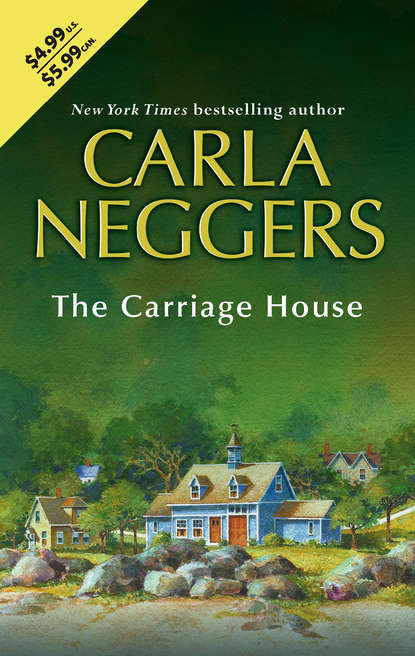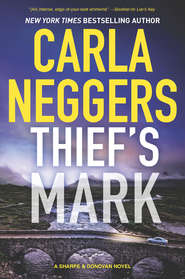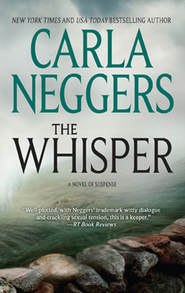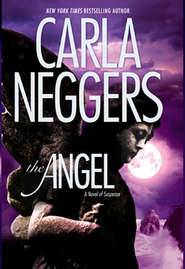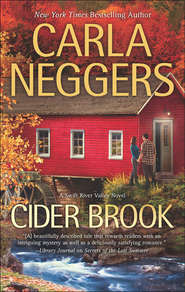По всем вопросам обращайтесь на: info@litportal.ru
(©) 2003-2024.
✖
The Carriage House
Автор
Год написания книги
2018
Настройки чтения
Размер шрифта
Высота строк
Поля
He finished his beer and decided he should get on with making dinner. Harl sometimes ate with them. Not always. Sometimes his cousin would fix a can of baked beans or chowder and eat out here on an Adirondack chair, in the shade—or the snow. And sometimes, Andrew knew, he didn’t eat at all.
“Dolly’s teacher came out today when I picked her up from school,” Harl said abruptly.
“Why?”
“She’s worried about Dolly’s ‘active imagination.’”
Andrew grimaced. He knew what was coming next. “You didn’t let her wear one of her damn crowns to school, did you?”
“She likes her crowns. I told her to leave them home, but she slipped one into her lunch box. It’s her favorite. What am I supposed to do, frisk a six-year-old?”
Andrew felt his pulse pounding behind his eyes. His daughter had a rich, creative mind, and it was getting her into trouble. He didn’t know what was normal for a six-year-old, what was peculiar. And Harl sure as hell didn’t. They’d both grown up on the wrong side of the tracks in Gloucester, in a neighborhood where there was always a fight to be had. Whether at sea, on a battlefield, on the street or in a bar, the Thornes always knew where to find a fight. The enemy didn’t matter.
A lot of people in Beacon-by-the-Sea would say neither he nor Harl had any damn business raising a kid like Dolly. Any kid.
“She thinks she’s a princess,” Harl said.
“That’s what she told Tess Haviland.”
The corners of Harl’s mouth twitched behind his white beard. “A princess has to have a crown.”
“Jesus, Harl. What did Miss Perez say?”
He shrugged his big shoulders. “No more crowns in school.”
Andrew knew there was more. “And?”
“She wants to meet with you.”
“Damn it, Harl—”
“You’re the father. I’m just the baby-sitter.” He yawned, the prospect of a first-grader who liked to pretend she was a princess obviously not one of the great concerns of his life. “Any idea where this Tess Haviland’s from?”
“Her car had Massachusetts plates.”
“What kind of car?”
“Rusted Honda.”
Harl nodded knowledgeably. “City car.”
Andrew watched as a few yards off, Dolly found a rung with one foot, then the other, lowering herself out of her tree house. On the second rung, she turned herself around very carefully and leaped to the ground, braids flying, crown going askew. She let out a wild yell, ran to Andrew and jumped on his lap with great enthusiasm. She was a solid girl, sweating from her adventures, bits of leaves and twigs stuck in her socks and hair. Her crown hadn’t flown off because it was anchored to her head with about a million bobby pins. She and Harl had put it together in his shop. The Queen of England couldn’t have asked for anything gaudier, never mind that “Princess” Dolly’s jewels were fake.
“What’s up, pumpkin?”
“I can’t find Tippy Tail. She won’t come out.”
If he were an expectant cat, Andrew thought, he wouldn’t come out, either. “Did you call her in a nice voice?”
Dolly nodded gravely. This was serious business. “I used my inside voice even though I was outside. Like this.” She dropped to a dramatic whisper, demonstrating. “Come, kitty, kitty, come.”
“And she didn’t come?”
“No.”
“Then what did you do?” Harl asked.
“I clapped my hands. Like this.”
She smacked her palms together firmly and loudly, which didn’t help the pounding behind Andrew’s eyes. “That probably scared her, Dolly,” he said.
She groaned. “Princess Dolly.”
Andrew set her on the grass. He was beginning to get a handle on this princess thing. “Do you make everyone call you princess?”
“I am a princess.”
“That doesn’t mean everyone has to call you Princess Dolly—”
“Yes, it does.”
Harl scratched the side of his mouth. “You don’t make them bow and curtsy, do you?”
She tilted her chin, defiant. “I’m a princess. Harl, you said the boys should bow and the girls should curtsy, that’s what people are supposed to do when they see a princess.”
Andrew suddenly understood the summons from her teacher. It wasn’t just about crowns. He shot Harl a look. “You got this started. You can finish it. You talk to Miss Perez.”
“What?” Harl was unperturbed. “She’s six. Six-year-olds have active imaginations. I thought I was G.I. Joe there for a couple years.”
“Six-year-olds don’t make their classmates bow and curtsy.”
“I don’t make them,” Dolly said.
Harl was doing a poor job of hiding his amusement. As a baby-sitter, he was reliable and gentle. Andrew never worried about his daughter’s safety or happiness with his cousin. But Harl had a tendency to indulge her imagination, her sense of drama and adventure, more than was sometimes in her best interest.
“I’m taking a walk down to the water before I start dinner,” Andrew said to her. “Do you want to come with me, let Harl get some work done?”
“Can we find Tippy Tail?”
“We can try.”
She scrambled off toward the front yard ahead of him. Andrew got to his feet, glancing back at his older cousin, remembering those first months so long ago when Harl had come home from Vietnam, so young, so silent. Most people thought he’d kill himself, or someone else. Andrew was just a boy, didn’t understand the politics, the limited options Harl had faced—or the low expectations. His cousin had defied everyone and become a police detective, and now an expert in furniture restoration and a keeper of six-year-old Dolly Thorne.
He and Andrew had each defied expectations, fighting their way out of that need to keep on fighting. Andrew had worked construction, forced himself to give up barroom brawls and a quick temper, met Joanna, had become an architect and a contractor. He and Harl weren’t part of the North Shore elite and never would be. They didn’t care.
“We’re not keeping the kittens,” Andrew said. “We’re clear on that, aren’t we, Harl?”
“Crystal. I told you. I hate cats.”





